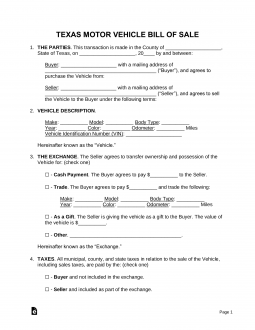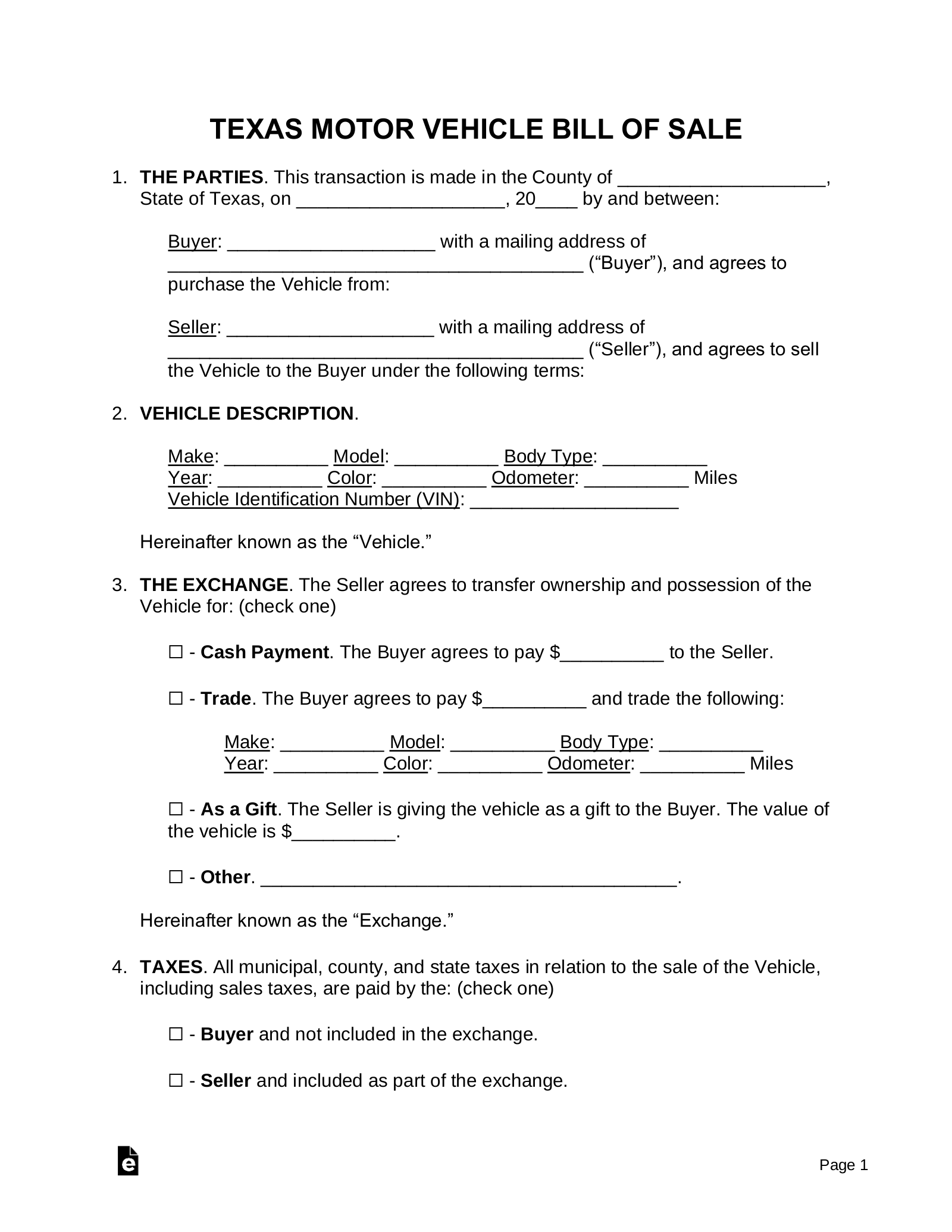Updated September 12, 2023
A Texas bill of sale form records an exchange of property between a buyer and a seller. The transaction details should be included in the document, such as the purchase price, property description, date of sale, and the parties involved.
For motor vehicle transactions, the seller should include the certificate of title and sign over to the new owner. The buyer will need the certificate of title and bill of sale to register.
Forms (4)
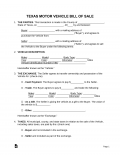 Motor Vehicle Bill of Sale – Use of this document would prove the legal sale and purchase of a motor vehicle in Texas. This document is often used in the registration process. Motor Vehicle Bill of Sale – Use of this document would prove the legal sale and purchase of a motor vehicle in Texas. This document is often used in the registration process.
Download:PDF, MS Word, OpenDocument |
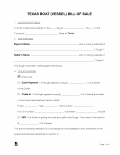 Boat Bill of Sale – Use this document to prove the legal sale and purchase of a vessel. May also be required for registration by the new owner. Boat Bill of Sale – Use this document to prove the legal sale and purchase of a vessel. May also be required for registration by the new owner.
Download: PDF, MS Word, OpenDocument |
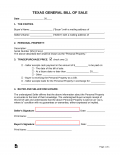 General Bill of Sale – This form would be used, generally, between two private parties to prove the sale and purchase of the personal property. General Bill of Sale – This form would be used, generally, between two private parties to prove the sale and purchase of the personal property.
Download: PDF, MS Word, OpenDocument |
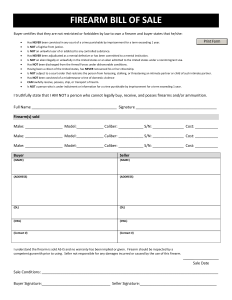 Firearm Bill of Sale – This document would be utilized in the sale and purchase of a gun in the state of Texas. Firearm Bill of Sale – This document would be utilized in the sale and purchase of a gun in the state of Texas.
Download: PDF |
Vehicle Registration Forms
- A completed Application for Texas Title and/or Registration (Form 130-U);
- A bill of sale with an odometer disclosure;
- Detailed information about the vehicle, including the Vehicle Identification Number (VIN);
- Proof of auto insurance meeting the state’s minimum requirements;
- $30,000 for injuries per person;
- $60,000 for injuries per accident;
- $25,000 for property damage;
- If more than one lien exists for the vehicle, an Additional Liens Statement;
- If an agent is acting on the buyer’s behalf, a Motor Vehicle Power of Attorney;
- If the vehicle was a gift, an Affidavit of Motor Vehicle Gift Transfer;
- Driver’s license or state ID; and
- All registration fees as listed in this fee schedule.
Boat Registration Forms
- A Bill of Sale;
- A completed Boat Title and Registration Application (Form PWD 143);
- Proof of payment of all taxes (use calculator) and registration fees;
- If the vessel is subject to a lien at the time of sale, a Release of Lien (Form PWD 231);
- If the boat is new, a Manufacturer’s Certificate of Origin, or if purchased used from someone with preexisting Texas title, the original title signed over to the buyer; and
- If the vessel was previously registered in another state, a Verification of Vessel or Outboard Motor Serial Number (Form PWD 504).

